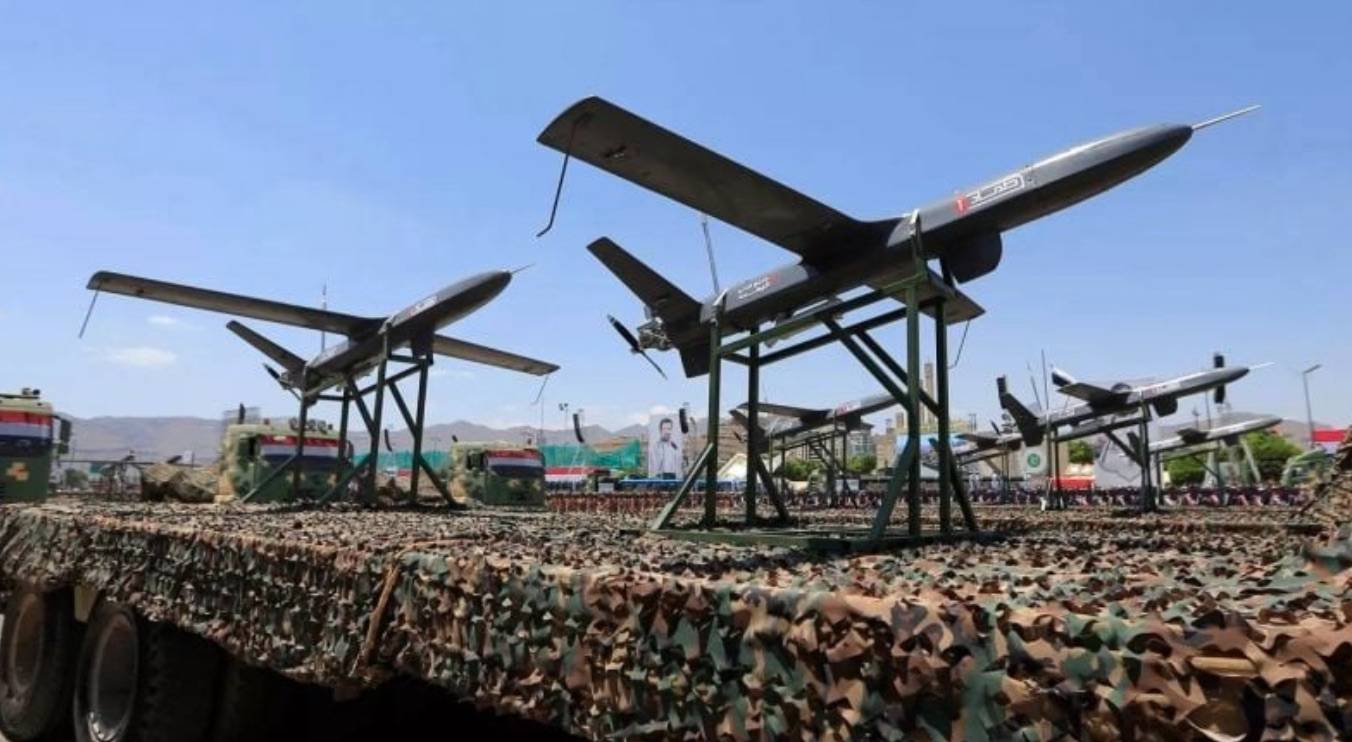Recent developments in the Middle East have escalated tensions between Israel and Houthi forces in Yemen. Following a drone strike by the Houthi rebels on an Israeli cargo ship in the Red Sea, Israel has responded with a significant military action targeting a key port city in Yemen. This latest exchange marks a sharp intensification in the region’s complex geopolitical landscape.
The drone attack on the Israeli vessel occurred early last week while the ship was navigating through the Red Sea, a vital international waterway for global trade. The attack, which caused minimal damage and no casualties, was attributed to the Houthi movement, a group aligned with Iran and known for its opposition to Saudi-led coalitions and Western interests in the region. The Houthis have increasingly used drone technology in their military operations, reflecting a broader trend of asymmetric warfare in the conflict.
In retaliation, the Israeli Defense Forces (IDF) launched airstrikes targeting facilities in the Yemeni port city of Al Hudaydah. This port, a crucial hub for humanitarian aid and commercial shipping, has been under the control of Houthi forces since 2014. The Israeli strikes reportedly aimed at disrupting the Houthis’ logistical capabilities and sending a stern message regarding the security of Israeli maritime assets. The IDF has stated that these strikes were intended to safeguard international shipping lanes and deter further aggression.
The reaction from international actors has been varied. The United Nations has expressed concern over the potential for escalating violence and its impact on the humanitarian situation in Yemen. Yemen has been embroiled in a protracted civil war since 2014, with the Houthis fighting against the internationally recognized government backed by a Saudi-led coalition. The conflict has already led to a severe humanitarian crisis, exacerbating conditions for millions of Yemenis.
Israel's military action is also a significant development in the context of broader regional dynamics. The Israeli government, under Prime Minister Benjamin Netanyahu, has adopted a more assertive stance in recent years, particularly in response to perceived threats from Iran and its allies. This response aligns with Israel’s strategic interest in maintaining freedom of navigation and security for its commercial interests in the Red Sea.
On the other hand, the Houthis' use of drones and other asymmetric tactics highlights their growing capability and the evolving nature of the conflict. The Houthis have received substantial support from Iran, which has supplied them with advanced weaponry and training. This support reflects the broader geopolitical struggle in the region, with Iran seeking to expand its influence and challenge the interests of Saudi Arabia, the United States, and Israel.
The situation remains fluid, with potential for further escalation. The international community continues to monitor the developments closely, assessing their implications for regional stability and international shipping security. The response from other key stakeholders, including regional powers and global maritime organizations, will be crucial in shaping the future course of this conflict.
As the situation evolves, the impact of these military actions on the broader geopolitical landscape and humanitarian conditions in Yemen will be critical to watch. The escalation underscores the ongoing volatility in the Middle East and the complex interplay of regional and international interests that drive these conflicts.
The drone attack on the Israeli vessel occurred early last week while the ship was navigating through the Red Sea, a vital international waterway for global trade. The attack, which caused minimal damage and no casualties, was attributed to the Houthi movement, a group aligned with Iran and known for its opposition to Saudi-led coalitions and Western interests in the region. The Houthis have increasingly used drone technology in their military operations, reflecting a broader trend of asymmetric warfare in the conflict.
In retaliation, the Israeli Defense Forces (IDF) launched airstrikes targeting facilities in the Yemeni port city of Al Hudaydah. This port, a crucial hub for humanitarian aid and commercial shipping, has been under the control of Houthi forces since 2014. The Israeli strikes reportedly aimed at disrupting the Houthis’ logistical capabilities and sending a stern message regarding the security of Israeli maritime assets. The IDF has stated that these strikes were intended to safeguard international shipping lanes and deter further aggression.
The reaction from international actors has been varied. The United Nations has expressed concern over the potential for escalating violence and its impact on the humanitarian situation in Yemen. Yemen has been embroiled in a protracted civil war since 2014, with the Houthis fighting against the internationally recognized government backed by a Saudi-led coalition. The conflict has already led to a severe humanitarian crisis, exacerbating conditions for millions of Yemenis.
Israel's military action is also a significant development in the context of broader regional dynamics. The Israeli government, under Prime Minister Benjamin Netanyahu, has adopted a more assertive stance in recent years, particularly in response to perceived threats from Iran and its allies. This response aligns with Israel’s strategic interest in maintaining freedom of navigation and security for its commercial interests in the Red Sea.
On the other hand, the Houthis' use of drones and other asymmetric tactics highlights their growing capability and the evolving nature of the conflict. The Houthis have received substantial support from Iran, which has supplied them with advanced weaponry and training. This support reflects the broader geopolitical struggle in the region, with Iran seeking to expand its influence and challenge the interests of Saudi Arabia, the United States, and Israel.
The situation remains fluid, with potential for further escalation. The international community continues to monitor the developments closely, assessing their implications for regional stability and international shipping security. The response from other key stakeholders, including regional powers and global maritime organizations, will be crucial in shaping the future course of this conflict.
As the situation evolves, the impact of these military actions on the broader geopolitical landscape and humanitarian conditions in Yemen will be critical to watch. The escalation underscores the ongoing volatility in the Middle East and the complex interplay of regional and international interests that drive these conflicts.
Topics
Politics

